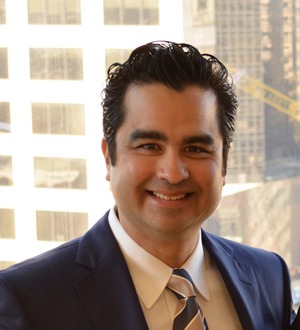
Partner at AKD Lawyers
Practice Areas: Personal Injury

As people age, their ability to drive safely can decline due to vision impairment, slower reaction times, and cognitive changes. While many elderly drivers remain fully capable, the risk of accidents increases with age. Families often struggle with the difficult conversation about whether their elderly loved one should still be on the road. At the same time, legal concerns arise regarding liability when an elderly driver causes an accident.
Understanding the legal implications of elderly driving accidents is crucial for both aging drivers and their families. This guide explores key aspects such as accident statistics, liability concerns, state regulations, and steps to take after an accident.
Elderly Driving Statistics
Elderly drivers are often perceived as high-risk, but the reality is more nuanced. While they are less likely to engage in reckless driving behaviors such as speeding or drunk driving, their vulnerability to accidents increases due to physical and cognitive limitations.
According to the Centers for Disease Control and Prevention (CDC):
Fatal crash rates increase noticeably starting at ages 70-74 and are highest among drivers age 85 and older.
Data also shows that elderly drivers are more likely to be seriously injured or killed in car accidents compared to younger drivers due to their increased fragility. While drivers between 65 and 79 get into accidents at about the same rate as those between 30 and 49, the consequences of these accidents tend to be more severe.
Legal Challenges Faced by Elderly Drivers
When an elderly driver is involved in an accident, proving liability and damages can be complicated. Some of the key legal challenges include:
Proving Causation in Injury Claims
Insurance companies and opposing attorneys may argue that an elderly driver’s injuries existed before the accident. For example, if an elderly driver sustains a back injury in a crash, an insurer may claim the injury was pre-existing rather than accident-related.
Reduced Life Expectancy and Damages
In wrongful death claims or personal injury cases involving elderly individuals, compensation may be lower than in cases involving younger victims. Courts consider factors such as life expectancy and future earning potential when awarding damages, which can limit financial recovery.
Cognitive Decline and Legal Responsibility
If an elderly driver has a diagnosed cognitive condition, such as dementia, legal questions may arise about whether they should have been driving at all. In some cases, liability may extend beyond the driver to family members or healthcare providers who failed to take necessary precautions.

Family Responsibility and Liability
Many adult children worry about their aging parent’s ability to drive safely, but in most cases, they are not legally responsible for accidents their parents cause.
While you may feel responsible for your elderly parent driving, you are not normally legally responsible for any accidents they cause.
However, there are exceptions. Family members can be held liable under negligent entrustment if they knowingly allow an elderly driver who is unfit to drive to operate a vehicle.
This may apply if an older adult:
- Has a diagnosed medical condition affecting their driving ability
- Has a history of multiple recent accidents or traffic violations
- Shows clear signs of impaired driving but continues to drive
To minimize legal risks, families should proactively assess their loved one’s driving abilities and consider alternative transportation options if concerns arise.

State Regulations and Licensing for Elderly Drivers
Different states have specific rules for elderly drivers, which may include:
- More frequent license renewals
- Mandatory vision tests
- Road tests for drivers above a certain age
For example, some states require drivers over 70 to renew their licenses in person rather than online. Other states mandate cognitive or reaction-time assessments for drivers above a certain age. It is essential to check the licensing requirements in your state to understand the legal responsibilities of elderly drivers.
Steps to Take Following an Accident Involving an Elderly Driver
If an elderly driver is involved in a car accident, specific steps should be taken immediately to ensure Safety and protect legal rights.
- Ensure Safety First – Check for injuries and call emergency services if necessary.
- Gather Evidence – Take photos of the scene, vehicle damage, and any visible injuries.
- Obtain Witness Statements – If bystanders saw the accident, their statements can be crucial.
- Seek Medical Attention – Even if injuries seem minor, medical evaluation is essential.
- Consult a Lawyer – An attorney can help determine liability and legal options.
Prompt legal action can make a significant difference in the outcome of any insurance claims or potential lawsuits.
Comparison of Accident Rates by Age Group
| Age Group | Accident Rate per 100,000 Drivers |
| 16-20 | Higher than average |
| 21-29 | Moderate |
| 30-49 | Lower than younger age groups |
| 50-64 | Stable |
| 65-79 | Similar to 30-49 age group |
| 80+ | Highest among all groups |
Elderly drivers aged 65-79 tend to have accident rates similar to middle-aged drivers, but the rate increases significantly for drivers over 80.
FAQs
At what age should elderly individuals stop driving?
There is no set age limit for driving. The decision should be based on the individual’s physical and cognitive abilities. Regular medical evaluations and self-assessments can help determine when it is no longer safe to drive.
Can I be held liable if my elderly parent causes a car accident?
Generally, adult children are not legally responsible. However, if you allow an elderly parent with known impairments to drive your vehicle, you may be held liable under negligent entrustment laws.
What are the signs that an older adult should stop driving?
Warning signs include frequent close calls, delayed reactions, getting lost in familiar areas, confusion at intersections, and unexplained dents on the vehicle. A professional driving assessment can help determine fitness to drive.
How can families approach the conversation about stopping driving with an elderly loved one?
It is best to approach the topic with empathy and understanding. Express concerns with specific examples, discuss alternative transportation options, and involve the older adult in the decision-making process.
Are there legal requirements for elderly drivers to renew their licenses more frequently?
Yes, many states require elderly drivers to renew their licenses more often, undergo vision tests, or take road tests. Each state has different requirements, so it is important to check local laws.
Conclusion
Determining when an elderly loved one should stop driving is never easy, but prioritizing Safety is essential. Understanding the legal implications, state regulations, and potential liabilities can help families make informed decisions. If an elderly driver causes an accident, it is crucial to take the proper steps to protect their rights and the rights of other parties involved.
If you or a loved one has been in an accident involving an elderly driver, AKD Law can help.
Our experienced attorneys understand the complexities of elderly driving accidents and can guide you through the legal process. Contact AKD Law today for a consultation, and let us help you navigate your legal options confidently.
Categories

In 2003, after being dissatisfied with the quality of legal care for victims of car accidents, Roderick ‘Rico’ Alvendia sought to establish a new firm focused on providing high-quality legal services to aid injured victims and their families. J. Bart Kelly, sharing Rico’s passion for upholding justice, joined the firm later that year, and established a partnership.






